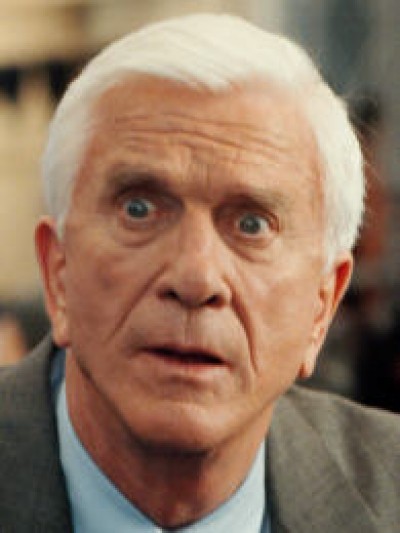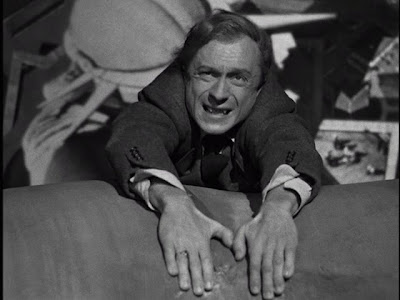Elsewhere in this blog, I've referred to a great old blues song by W.C. Handy, "Loveless Love." (500) Days of Summer (2009) seems to be an attempt to make a charming movie without charm. Or a relationship movie that's about a bad relationship. I suppose the filmmakers should be congratulated for the ground-breaking courage, but it makes for a grim 90 minutes that is apparently meant to be fun. This is akin to making a delightful comedy about getting rid of a skin condition.
 I suppose they play fair--Leslie Nielsen tells us in voice-over (and how much more wonderful would the film have been if they had put Mr. Nielsen on-screen): "You should know up front this is not a love story." All right, but it was reasonable to expect a should-have-been love story. And Joseph Gordon-Levitt is a marvelous actor who deserves to star in a marvelous vehicle. (He's already done so, in the brilliant film Brick, but not enough people know about that one.)
I suppose they play fair--Leslie Nielsen tells us in voice-over (and how much more wonderful would the film have been if they had put Mr. Nielsen on-screen): "You should know up front this is not a love story." All right, but it was reasonable to expect a should-have-been love story. And Joseph Gordon-Levitt is a marvelous actor who deserves to star in a marvelous vehicle. (He's already done so, in the brilliant film Brick, but not enough people know about that one.)Problem is that Zooey Deschanel, who has been on the cusp for a number of years, remains on the cusp here. It's still possible she will break through and become an actual phenomenon, but she has been hovering there for about 11 years without happening. And something about the girl in this story has to be tantalizing enough for Our Hero to delude himself into believing that there is a reason to keep trying. (The narration tells us that the heroine does not believe in love, there's no reason to believe that's true. Unlike the similarly-themed Paper Heart, nothing the girl does or says convinces us that she doesn't believe love could be just around the corner. Just not with Joseph Gordon-Levitt.) For whatever reason, Deschanel--in this film, anyway--is not That Girl. And the film falls apart beyond repair by that flaw of casting.
A couple of observations for the filmmakers and cineastes--this film did not invent the non-sequential failed romance. You would have to go back at least to Richard Lester's Petulia (1968) which might not go over with the audience today because the man is much older than the woman. But its non-sequentiality is far more disorienting than in (500) Days. In the latter, each day comes carefully labeled. I know there were people who were confused by the film nonetheless, but there are people who are confused when green traffic lights turn amber, so we can't worry about those people. One sequence that did feel inventive (I am ready for someone to point out its antecedent) had two screens side-by-side showing "Expectation" and "Reality." Not only was it a clever story-based narrative device, it also contained the final resolution of the story. (But for two very well-done codas, one of which may have been imaginary.)
A talented film, if not an accomplished one.






No comments:
Post a Comment